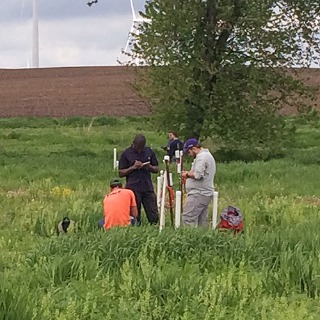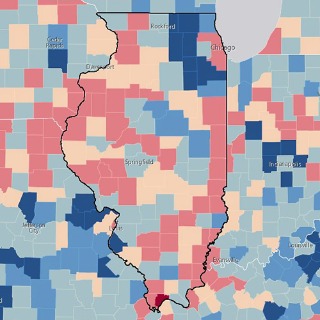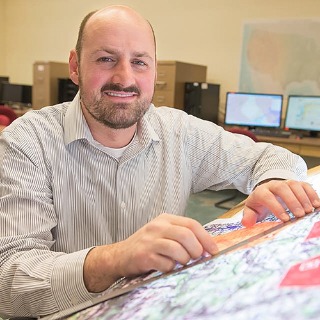Facilities
Our facilities give you real, hands-on experience.

T3 Field Site
Our T3 field site is reclaimed agricultural land that's being restored as prairie. The site lets you explore the use of a diversion tile network to help remove nutrients in groundwater and surface water. Research at T3 focuses on the transport and fate of nutrients in a saturated buffer zone.
What's Included
T3 has more than 20 wells that provide groundwater monitoring capabilities.
Laboratory for Environmental Analysis (LEA)
LEA is a not-for-profit professional analytical laboratory. It provides analytical services for nutrients in soil and water samples to the University and community. Students who work in the lab have the opportunity to advance their skills and get professional laboratory experience.
What's Included
Major instruments used in LEA include a Lachat FIA and a Dionex Ion Chromatograph.

The Institute for Geospatial Analysis and Mapping (GEOMAP)
Develop your skills on a professional level. GEOMAP supports research, education, and outreach. These activities give us a better understanding of our environmental and social challenges thanks to Geographic Information Science. GIScience ensures we have a sustainable future throughout the world.
What's Included
GEOMAP is a modern research facility for geographic information science research and mapping projects.
-
Software includes:
- ESRI ArcGIS
- ENVI
- Adobe Creative Suite
-
Hardware includes:
- Computationally intensive computers
- iPads
- GPS equipment
- Printers
- Plotters

Illinois Geographic Alliance
IGA includes a group of educators that promote geographic knowledge in schools and all across Illinois. They are active in teacher education and developing curriculum materials.
What's Included
- Giant Traveling Floor Map of Illinois
- Online Atlas of Illinois